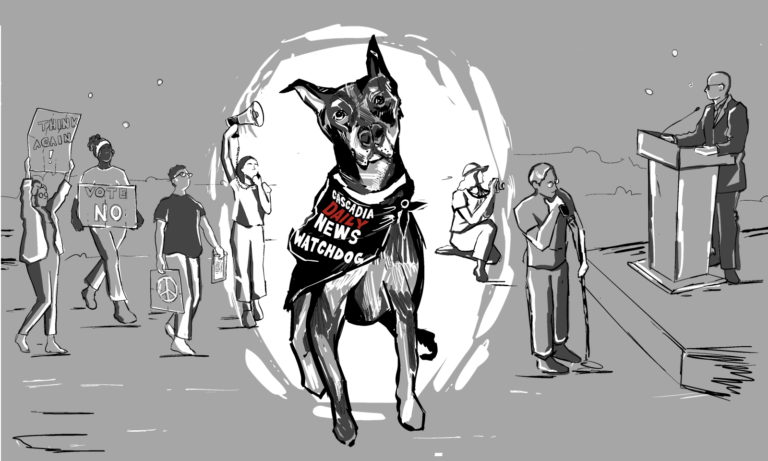OLYMPIA — A top Democrat in the Washington Legislature is pulling support of a proposed tax on fuel exported from the state’s five refineries that has been criticized by neighboring states.
The Seattle Times reports Rep. Jake Fey, D-Tacoma, one of the architects of a proposed $16.8 billion transportation funding measure, said Saturday he no longer backed the controversial levy.
“We’ve been hearing people and been hearing their concerns,” Fey told the newspaper. “Everything from the price of oil as it’s been, to the concern about what might transpire with what’s going on in Ukraine, to the response from the elected officials in Oregon, Idaho and Alaska.”
Majority Democrats had proposed a 6-cent-per-gallon tax on fuel exported from the state. Nearly 40% of the fuel processed in Washington refineries goes to other states, primarily Oregon. In proposing the new tax, Democrats said it was a way for nearby states to share in the environmental burden caused by those refineries.
But the backlash was swift, accompanied by legal threats. Republicans in Idaho and Alaska threatened retaliation. And Oregon Gov. Kate Brown, a Democrat, called on Washington Gov. Jay Inslee to veto the tax and for lawmakers to change course. She said the tax would become bogged down in legal fights, jeopardizing cooperation between the two states on a new Interstate 5 crossing over the Columbia River.
In place of the tax, which was estimated to raise $2 billion over the next 16 years, Fey wants to instead transfer $100 million a year for the next 15 years from the state’s public works account.
The amended plan would leave the state with $500 million less in funding for transportation projects than what was proposed in Democrats’ original package. Fey said that will inevitably mean some pieces of the measure will be cut, but he’s uncertain which.
Fey said he’d notified Democratic House members of the change and spoke to his counterpart, Sen. Marko Liias, D-Lynnwood, Saturday morning.
Liias said he was “pleased” with the progress of the package in the House and is “open to alternative ways to fund it.”



